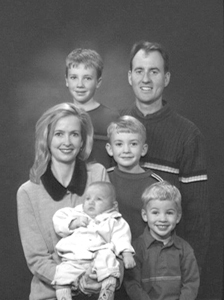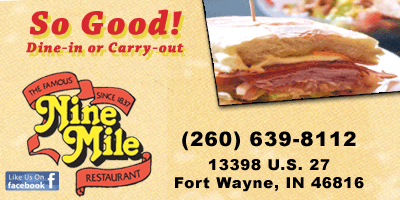ANOTHER VIEW
 How Will the Balance Tip?
How Will the Balance Tip?
Though apologists for the Islamic Caliphate like to point to the Ottoman Empire as an example of religious tolerance existing long before such a concept ever took hold in a religiously divided Europe, the reality of a difficult life as a non-Muslim minority in a Muslim society has never been something enviable.‑ The Ottomans did open their borders to the Jews expelled by the Spanish in 1492, allowing them to become Dhimmis like Greek and Armenian minorities.‑ This category exempted them from military service—because Muslim Ottomans feared they might betray them—and forced them to become second-class citizens politically, economically, and religiously.
For Turkey, from the Ottoman days to the present, religious freedom and tolerance has always meant a one-way street.‑ A non-Muslim could easily convert to Islam, but neither a convert nor someone born into Islam could leave the Muslim community except on pain of death.‑ Christian minorities were allowed to exist within tightly controlled parameters.‑ They could in no way propagate their faith or expand their borders.‑ Even the sweeping reforms of Ataturk ending the Islamic Caliphate, instituting Latin script in place of Arabic and placing the religious hierarchy under the direct control of the secular government did not alter this basic oppression of religious freedom.‑
Islam in Turkey exerts its pressure through a shame-based patriarchal society.‑ During Ramadan, the month of fasting, anyone breaking the fast in public businesses, government offices or public restaurants will experience some form of societal disapproval.‑ This rarely takes the form of physical violence anymore, but the verbal and non-verbal signals send a strong and clear message: fail to conform at your own risk.‑ Shame gets passed down through the mosques, the religiously conservative uncle or grandfather, the boss, the neighbor.‑ Everyone remains keenly aware of everyone else.‑ No deviation is allowed.‑ Islam must reign supreme.
This came clearly to me recently in a conversation with a neighbor.‑ Though we were sitting in his living room chatting while he enjoyed a glass of wine, he noticeably lowered his voice as if someone might be listening before he said, “it’s a free country, every one should have the right to choose whatever religion he wants.”‑ What everyone should have and what everyone does have obviously are two different things.
Islam is a strong idea.‑ It’s an idea that has the allegiance of 1.2 billion people in the world. ‑It is an absolute idea, proposing an absolute language, Arabic; an absolute messenger of God, Muhammad; and an absolute religious system, the five pillars.‑ As Lamin Saneh points out in his landmark book Translating the Message, the texts and message of Islam must stay true to their Arab peninsular roots in anti-thesis to the translatability of the Christian religion that has grown far from its Greco-Roman-Semitic context.‑ An absolute Islam is for everyone, everywhere, at all times.‑ It pulsates with a pressure to grow, to expand, to fill, every space.‑ It will spill over into every space, even overcoming resistance.
The intellectual climate of modern Europe offers some resistance to Islam, but the post-modernism of most Western European societies has created an idea-vacuum struggling to withstand the robust idea of Islam.‑ Already Western European societies have begun to hesitate with the masses of Muslims in their midst.‑ Banning headscarves in public schools seems just a flimsy sandbag unless Europe reclaims a concrete moral core.
Understanding the vast and complex Muslim world has held Ron and Jean Coody’s attention for fifteen years. The collapse of the Soviet Union in 1991 gave them an unprecedented open door to move into the newly formed Central Asian country of Kazakstan. For the first half of the decade they worked alongside Kazaks seeking to address the many problems left behind by Soviet rule. After serving five years in Kazakstan, the Coody’s relocated to Cyprus. There they studied the Muslim context and helped produce media materials in the Arabic language. In 2002 they began working in Istanbul, Turkey.
After leaving Kazakstan in 1998 Ron wrote a book about their years among the Kazaks to help Westerners better understand the Muslim world. Even in the age of electronic communication Ron considers written material to be one of the most powerful means of communication. While in Turkey Ron will continue to write with the purpose of providing glimpses into the Muslim world.
Ron and Jean have four boys, John, Elliot, Judah Paul, and Isaiah. Ron grew up in north Louisiana and Jean near Taylor University-Fort Wayne. Ron is currently studying for a Ph.D. from Concordia Theological Seminary and Jean graduated from Indiana Wesleyan University in nursing. They belong to Avalon Missionary Church and consider the Waynedale area one of their home communities.
- The Waynedale Community Navigates Bluffton Road Construction - March 3, 2026
- Smiley’s Garden Angels Celebrates 25 Years, Hosts Fundraiser - March 3, 2026
- I&M Announces Upcoming Base Rate Reduction - March 3, 2026


